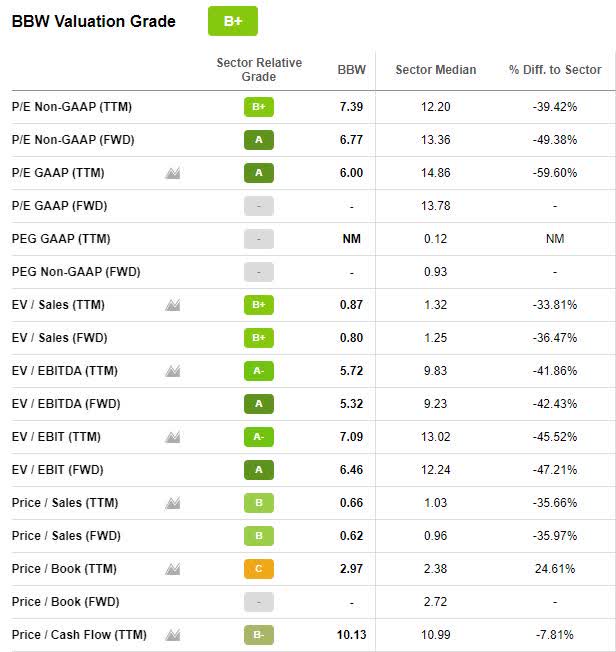
Ford stock is a great option for long-term investors. The company pays out a healthy dividend and has a balanced risk/reward ratio. However, at this time the stock could be overpriced.
When determining whether or not to buy or sell a stock, you need to take into account the market environment, a company's financial health and growth potential, as well as other factors. Ultimately, your investment goals, risk tolerance and allocation should guide your decisions.
If you are a new investor, you may want to consider investing in a company with a strong track record of profitability. You can also choose to invest in a stock with a strong dividend yield, as this can provide a safety net in times of economic uncertainty.
You can determine if an investment is good by evaluating its value and stock price. This can also be done by using various methods like fundamental and technical analysis, and comparing it to other companies in the industry.

A strategy of investing in stocks that are currently undervalued can be a profitable one. Also, you will want to take into account the future potential and impact of political or economic events on a company's business.
Ford has a strong brand and is known for quality. This has helped the company grow and maintain its customer base and loyalty.
You can expect Ford to grow its profits by improving its products and marketing. The company will also invest in future technologies.
For instance, the company plans to invest in a vehicle that does not have a fuel tank and is completely electric. It plans to increase its capabilities for autonomous driving.
A battery-powered F-150 is being developed by the company. They will be able to reduce diesel emissions.

This is an excellent move on the part of the automaker. They're in a time-frame where they will replace their diesel models with more fuel-efficient and cleaner alternatives.
Ford has delivered 1.9 millions electric cars and SUVs as of March. This is a large number and a boost to the EV sales.
Rivian is a company that produces hybrid and electric vehicles. This investment will allow them to continue growing their EV sales.
Ford stock is currently on a positive trend, but there are some things you should be watching out for. The stock has struggled to climb above its 200-day moving average, which has acted as a key support level in recent weeks. In addition, the relative strength line for the company has dropped significantly after rising to begin 2022.
FAQ
What are some advantages of owning stocks?
Stocks are more volatile that bonds. The value of shares that are bankrupted will plummet dramatically.
However, if a company grows, then the share price will rise.
For capital raising, companies will often issue new shares. This allows investors buy more shares.
To borrow money, companies can use debt finance. This allows them to borrow money cheaply, which allows them more growth.
People will purchase a product that is good if it's a quality product. Stock prices rise with increased demand.
The stock price will continue to rise as long that the company continues to make products that people like.
What is an REIT?
A real estate investment Trust (REIT), or real estate trust, is an entity which owns income-producing property such as office buildings, shopping centres, offices buildings, hotels and industrial parks. They are publicly traded companies which pay dividends to shareholders rather than corporate taxes.
They are similar to a corporation, except that they only own property rather than manufacturing goods.
What's the role of the Securities and Exchange Commission (SEC)?
Securities exchanges, broker-dealers and investment companies are all regulated by the SEC. It enforces federal securities regulations.
Can bonds be traded?
They are, indeed! They can be traded on the same exchanges as shares. They have been trading on exchanges for years.
The difference between them is the fact that you cannot buy a bonds directly from the issuer. They can only be bought through a broker.
This makes it easier to purchase bonds as there are fewer intermediaries. This also means that if you want to sell a bond, you must find someone willing to buy it from you.
There are many kinds of bonds. There are many types of bonds. Some pay regular interest while others don't.
Some pay interest quarterly while others pay an annual rate. These differences make it possible to compare bonds.
Bonds are a great way to invest money. For example, if you invest PS10,000 in a savings account, you would earn 0.75% interest per year. If you invested this same amount in a 10-year government bond, you would receive 12.5% interest per year.
If you put all these investments into one portfolio, then your total return over ten-years would be higher using bond investment.
How are securities traded
The stock exchange is a place where investors can buy shares of companies in return for money. To raise capital, companies issue shares and then sell them to investors. When investors decide to reap the benefits of owning company assets, they sell the shares back to them.
The supply and demand factors determine the stock market price. The price goes up when there are fewer sellers than buyers. Prices fall when there are many buyers.
There are two ways to trade stocks.
-
Directly from the company
-
Through a broker
What is security at the stock market and what does it mean?
Security is an asset that generates income. The most common type of security is shares in companies.
A company could issue bonds, preferred stocks or common stocks.
The earnings per share (EPS), and the dividends paid by the company determine the value of a share.
When you buy a share, you own part of the business and have a claim on future profits. You will receive money from the business if it pays dividends.
Your shares may be sold at anytime.
Statistics
- Even if you find talent for trading stocks, allocating more than 10% of your portfolio to an individual stock can expose your savings to too much volatility. (nerdwallet.com)
- Individuals with very limited financial experience are either terrified by horror stories of average investors losing 50% of their portfolio value or are beguiled by "hot tips" that bear the promise of huge rewards but seldom pay off. (investopedia.com)
- Our focus on Main Street investors reflects the fact that American households own $38 trillion worth of equities, more than 59 percent of the U.S. equity market either directly or indirectly through mutual funds, retirement accounts, and other investments. (sec.gov)
- The S&P 500 has grown about 10.5% per year since its establishment in the 1920s. (investopedia.com)
External Links
How To
How to open and manage a trading account
To open a brokerage bank account, the first step is to register. There are many brokers available, each offering different services. There are many brokers that charge fees and others that don't. Etrade, TD Ameritrade and Schwab are the most popular brokerages. Scottrade, Interactive Brokers, and Fidelity are also very popular.
Once you've opened your account, you need to decide which type of account you want to open. These are the options you should choose:
-
Individual Retirement accounts (IRAs)
-
Roth Individual Retirement Accounts
-
401(k)s
-
403(b)s
-
SIMPLE IRAs
-
SEP IRAs
-
SIMPLE SIMPLE401(k)s
Each option has different benefits. IRA accounts are more complicated than other options, but have more tax benefits. Roth IRAs permit investors to deduct contributions out of their taxable income. However these funds cannot be used for withdrawals. SIMPLE IRAs are similar to SEP IRAs except that they can be funded with matching funds from employers. SIMPLE IRAs can be set up in minutes. These IRAs allow employees to make pre-tax contributions and employers can match them.
Finally, you need to determine how much money you want to invest. This is called your initial deposit. Most brokers will offer you a range deposit options based on your return expectations. For example, you may be offered $5,000-$10,000 depending on your desired rate of return. This range includes a conservative approach and a risky one.
After you've decided which type of account you want you will need to choose how much money to invest. There are minimum investment amounts for each broker. The minimum amounts you must invest vary among brokers. Make sure to check with each broker.
You must decide what type of account you want and how much you want to invest. Next, you need to select a broker. You should look at the following factors before selecting a broker:
-
Fees: Make sure your fees are clear and fair. Brokers often try to conceal fees by offering rebates and free trades. However, some brokers raise their fees after you place your first order. Be cautious of brokers who try to scam you into paying additional fees.
-
Customer service: Look out for customer service representatives with knowledge about the product and who can answer questions quickly.
-
Security - Choose a broker that provides security features such as multi-signature technology and two-factor authentication.
-
Mobile apps - Check if the broker offers mobile apps that let you access your portfolio anywhere via your smartphone.
-
Social media presence - Check to see if they have a active social media account. If they don't, then it might be time to move on.
-
Technology - Does it use cutting-edge technology Is it easy to use the trading platform? Are there any glitches when using the system?
Once you've selected a broker, you must sign up for an account. Some brokers offer free trials. Others charge a small amount to get started. After signing up, you'll need to confirm your email address, phone number, and password. You will then be asked to enter personal information, such as your name and date of birth. Finally, you'll have to verify your identity by providing proof of identification.
After your verification, you will receive emails from the new brokerage firm. You should carefully read the emails as they contain important information regarding your account. These emails will inform you about the assets that you can sell and which types of transactions you have available. You also learn the fees involved. Be sure to keep track any special promotions that your broker sends. These could be referral bonuses, contests or even free trades.
The next step is to open an online account. An online account can usually be opened through a third party website such as TradeStation, Interactive Brokers, or any other similar site. Both websites are great resources for beginners. When you open an account, you will usually need to provide your full address, telephone number, email address, as well as other information. After all this information is submitted, an activation code will be sent to you. This code will allow you to log in to your account and complete the process.
You can now start investing once you have opened an account!